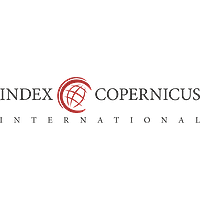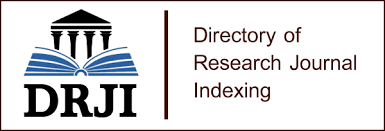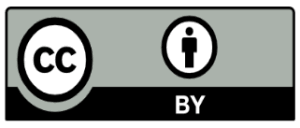THE STANDARD OF CARE IN TRADITIONAL MEDICINE AND MODERN MEDICINE
Abstract
This study aims to present the standard of care used in both traditional and modern medicine with attempts to compare and contrast between each of them. The issue of concern is whether practitioners in both medicine are required to adhere and follow the same standard of care or each one has its own standard differ from other. Such standard is considered as the cornerstone in the field of medicine; its practitioner is, thus, required to be committed in acting in accordance to the given standard and failure to do so could result to certain legal implications and actions. Therefore, practitioners in the field of medicine are held liable if found to be negligent in any of the given standard of care. So, to examine this issue, this study explains the definition of the standards of care in traditional and modern medicine firstly. Following by stating the limitations of the given standards of care in each field of medicine secondly. At the latest, it will mention the critical view of standard of care in both medicine. Overall, the main outcome of this study is that the given standard of care whether in the field of traditional or modern medicine is different in either field. This professional differences lead absolutely to vary their legal principles and rules in malpractice cases. Because of a very unique philosophy, set of principles, definitions, and standard for traditional medicine in contrast to modern medicine. Â
References
Aimee Doyle. J.D., (2001). Alternative Medicine and Medical Malpractice: Emerging Issues, Journal of Legal Medicine, vol. 22, Issue 4: 534, Taylor & Francis Group, www.tandfonline.com.
Christine C. Kung. (2005). "Defining a Standard of Care in the Practice of Acupuncture", American Journal of Law & Medicine, vol. 31, no.1: 122, heinonlinebackup.com.
Dana C. Mcway. (2003). Legal Aspects of Health Information Management, United States, Delmar Learning, 2nd edn.).
David Goguen, J.D.. “What is the Medical Standard of Care?â€, www.alllaw.com, accessed 4/4/2015.
Dianne McMahon. “Nursing Standards of Practiceâ€, McMahon & Associates, HG.org Legal Resources, www.hg.org, accessed 12/6/2015.
Duty of Care, State of New South Wales, Department of Education and Training, 2009, sielearning.tafensw.edu.au, accessed 22/5/2015.
Gerard Bodeker & Gemma Burford. 2007. Traditional, Complementary and Alternative Medicine Policy and Public Health Perspectives, London, Imperial College Press.
Gleen E. Bradford & David G. Meyers. (2002). “Legal and Regulatory Climate in the State of Missouri for Complementary and Alternative Medicine- Honest Disagreement among Competent Physicians or Medical McCarthyismâ€, University of Missouri-Kansas City School of Law, UMKC Law Review, vol. 70, no.55, heinonlinebackup.com.
Ian Kerridge & others. (2013). Ethics and Law for the Health Professions, Australia, The Federation Press, 4th edn.
Joan Gilmour& others. (2011). Complementary and Alternative Medicine Practitioners' Standard of Care: Responsibilities to Patients and Parents, the American Academy of Pediatrics, vol. 128 no. 4 pediatrics.aappublications.org, accessed 3/12/2015.
Julie stone & Joan Matthews. (1996). Complementary Medicine and the Law, New York, Oxford University Press.
Kirk Heilbrun & others. (2008). “Standard of Practice and Care in Forensic Mental Health Assessmentâ€, Psychology, Public Policy, and Law, vol. 14 no. 1: 2, www.men. talcompetency.org.
Leonard Berlin. (2012). “Is There a Difference Between “Standard of Care†and “Standard of Practice�, American Journal of Roentgenology., vol 199, www.ncbi.nlm.nih.gov.
MedicineNet, Definition of Standard of care, www.medicinenet.com.
Melanie Gura. (2012). “Differentiating between Nursing Scope of Practice and Standards of Careâ€, HMP Communications, www.eplabdigest.com, accessed 5/12/2015.
Michael John Weir. (2003). “A new model for the regulation of Complementary and Alternative Medicine in Australia,†PHD Thesis, School of Law Bond University.
Muh Endriyo Susila. (2005). Law Relating to Medical Malpractice: A comparative Study between Indonesia and Malaysia, (Master Dissertation, International Islamic University, Malaysia.
Nancy Faass. (2001). Integrating Complementary Medicine into Health System, United States of America, Aspen Publishers.
Putri Nemie Jahn Kassim& Abu Haniffa Mohamed Abdullah. (2003). Issues in Medical Law and Ethics, Kuala lumpur, International Islamic University.
Ruth Barcan. (2011). Complementary and Alternative Medicine, United Kingdom, MPG Books.
Segen's Medical Dictionary. (2011). Retrieved February 19 2016 from http://medicaldictionary.thefreedictionary.com/modern+medicine
WHO Traditional Medicine Strategy: 2014-2023, World Health Organization 2013, 25, www.who.int, accessed 22/7/2014.
Islam, M. Z. (2013). Medical Negligence in Malaysia and Bangladesh: A comparative study. IOSR Journal Of Humanities And Social Science (IOSR-JHSS) Vol. 14(3), 82-87.
Published
How to Cite
Issue
Section
License
Copyrights for articles published in Journal of Asian and African Social Science and Humanities are retained by the authors, with first publication rights granted to the journal. The journal/publisher is not responsible for subsequent uses of the work. It is the author's responsibility to bring an infringement action if so desired by the author.
Articles published in Journal of Asian and African Social Science and Humanities are published under the Creative Commons Attribution (CC-BY) license, which permits others to distribute, remix, tweak, and build upon your work as long as they credit you for the original creation.
Â














